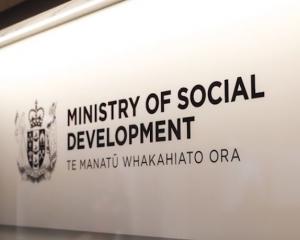Children in early childhood education may have been placed at risk of developmental damage after the Government's continued focus on driving up participation despite sector-wide concerns about quality.
The Education Ministry, the Education Review Office and advisory groups all believe there are quality issues in New Zealand and recently urged Education Minister Hekia Parata to work to raise standards.
Successive reports to the minister warned that poor care was harmful -- particularly for babies -- and could have long-term effects on learning and behaviour.
A Herald investigation has found there were 150 services reviewed by the ERO in 2014 alone that required "further development" or had to have a supplementary review; 30 were on provisional licences.
The most serious issues included a lack of supervision, poor management, no police vetting of staff, a lack of cultural response, and limited knowledge of the curriculum and child development.
In 2012, Ms Parata released recommendations on how to remedy the problems -- including the announcement of an urgent review of home-based care -- but they were never fully addressed, and the review was shelved.
At the same time at least 5000 new children have joined the 200,000 preschoolers in early childhood education as part of the Government's aggressive participation programmes.
The participation work is focused on getting youngsters into services in low-socio-economic areas, where the quality of education is often the worst -- something critics say is reckless.
"We are talking about some of our youngest, smallest children. This is the most important time in a child's life," said Green MP Catherine Delahunty.
"If you can't provide quality care, let alone education, it is damaging. The research says there is no point of early childhood education unless it's quality. These children would be better off in their own homes."
The Government has reported 96.6 per cent participation in quality ECE to December 2014, counting all enrolments towards its target of 98 per cent by 2016.
The targets cover any type and length of participation before children start school -- including kindergarten, playcentre, nannying or other home-based services, and daycare.
Asked if there was a quality issue, Ms Parata said: "New Zealand's early childhood education services are overwhelmingly of a high quality, as shown by reviews of services by the Education Review Office."
This was despite saying in 2013 that there was "further work to do in raising the quality of governance, leadership and teaching in some areas."
The minister said that in the 18 months to February, only 12 out of 1593 services were described as "not well placed" to promote positive learning outcomes for children.
Associate Professor Linda Mitchell, an early childhood expert at Waikato University, said the Herald's findings were unacceptable.
"Longitudinal studies show that if ECE is quality it can be linked to achievement at school, higher qualifications and paid employment.
"Low quality can be associated with anti-social and worried behaviours. It's particularly detrimental for babies and toddlers if they're ignored or it's noisy, there's lots of changes in care -- when environments are stressful."
Early Childhood Council chairman Peter Reynolds said the centres it represented were "no friends to low quality". He believes funding for the participation programmes -- more than $100 million so far -- has undercut the amount of money being given to centres to pay teachers, a major part of centres' costs.
Those on the sector advisory panels from 2012 were understood to be disappointed with the lack of action. The Government says it responded on issues that had the biggest impact -- such as quicker ministry response to poorly performing services. It says a funding review is also under way and an advisory group on early learning established.
However, advisory group member and New Zealand Kindergartens head Clare Wells said very little or no progress had been made on reducing group sizes, lowering adult/child ratios and ensuring a more qualified teaching staff -- the three most important quality factors.
"None of these recommendations have been picked up, which is at odds with the significant effort by government to focus on high-quality teachers and teaching practice."
Currently, only 50 per cent of staff have to be qualified, ratios for under-2s are 1:5 when the recommended high-quality figure is 1:3, and groups can be up to 150 for older children.
"Arguably a child who has just turned 2 could be with 149 others at any one time, and that's not acceptable," Ms Wells said.
The minister said she was focused on both participation and quality. "Along with their education and care," Ms Parata said, "the health and safety of every child attending an ECE service or kohanga reo is of the utmost importance."
Most early childhood services do a great job, but a few are causing concern.
Examples of poor quality:
* One mum told researchers:
"The education with my son was embarrassing and disturbing. My kids were embarrassed because of teachers putting my son outside because he [soiled] himself ...You don't subject children that age to ridicule just because he has made a mistake, so that [was] very stressful."
* An ERO report into a centre found concerns about inappropriate treatment of children. Other health and safety concerns were also identified around nappy changing and handling of food. In addition, broken equipment and furniture and damage to the outside of properties posed a threat to children's physical safety.
* A case worker for priority families told researchers: "There is one centre in a quite high-needs area that won't take our children at all, so their needs are not being met whether culturally or whatever. They have been stereotyped as being 'those children' and 'we don't want those children in our centre'."
* At one centre, the ERO found under-2s were included in a group of older children for most of the day. "Teachers appear unaware of the need for a separate person with responsibility for this group to be with these younger children wherever they are playing," the ERO said. "At present, these children are poorly supervised at times during the day. There are poor resources for these youngest children."
* A home-based service was found to have no way of knowing that the educators' homes were up to standard. Application forms for nannies and au pairs lacked referees and police vetting lacked rigour, the ERO said.
* At many centres, teachers failed to understand how to implement the curriculum. For example, the ERO found one centre where teaching practices were "highly variable". There were significant areas of non-compliance in the service related to the curriculum, management of risk for excursions, the appraisal process, leadership and governance.
- Kirsty Johnston of the New Zealand Herald











